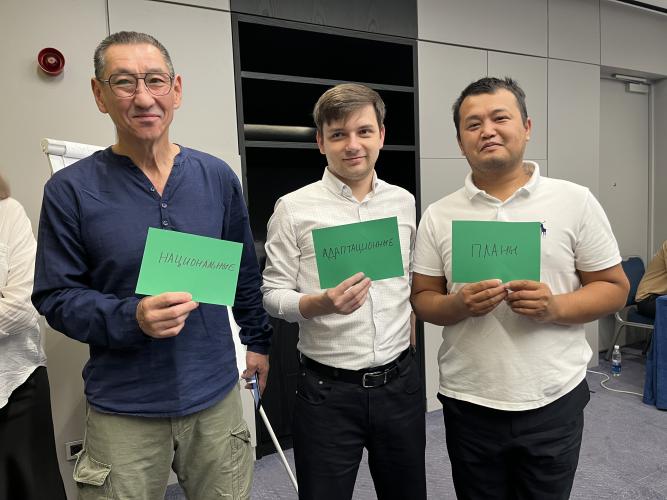By invitation only.
Background
The Regional Climate Action Transparency Hub for Central Asia (ReCATH) is the regional project of the Initiative for Climate Action Transparency (ICAT) and the Regional Environmental Centre for Central Asia (CAREC) with the aim to build the capacities of the national and regional experts on transparency systems and climate reporting and to meet the commitments of the Article 13 of the Paris Agreement.
The project uses a regional approach in capacitating all five countries of Central Asia, namely, Kazakhstan, Kyrgyzstan, Tajikistan, Turkmenistan and Uzbekistan, and provides support to the technical experts and practitioners in establishing the solid and lean transparency systems. The ReCATH project is implemented by the Regional Environmental Centre for Central Asia (CAREC).
The Capacity-building Initiative for Transparency – Global Support Programme (in short, the CBIT-GSP) is a five-year global project, funded by the Global Environment Facility (GEF), implemented by the United Nations Environment Programme (UNEP) and executed by the UNEP – Copenhagen Climate Center (UNEP-CCC). The objective of the CBIT-GSP is to provide streamlined support and capacity-building at the national, regional, and global level to assist developing countries in responding to the reporting provisions under the UNFCCC and the Paris Agreement’s Enhanced Transparency Framework, and ultimately increase ambition for climate action. CBIT-GSP is implemented via regional networks. For the countries of Central Asia and the Caucasus, the project works with Armenia, Azerbaijan, Kazakhstan, Kyrgyzstan, Tajikistan, Turkmenistan and Uzbekistan.
Given the commonalities of both projects in supporting the region to address capacity needs on transparency and ETF, CAREC/ReCATH and CBIT-GSP cooperate in organizing the regional in-person workshop on Reporting on Adaptation: ETF/BTR requirements, best practices and existing methodologies and approaches.
Objective and tasks of the workshop
The key goal of the workshop is to deepen skills and knowledge of participants on reporting provisions for information related to climate change impacts and adaptation under the Paris Agreement and the Convention, including adaptation-related information that should be included in the BTR.
The workshop also strives to present country’s best practices and examples in reporting on adaptation within existing reporting modalities (MRV) and navigate to the experience in using the tools and methodologies which help them to compile the information on adaptation and reporting under the UNFCCC.
Expected outputs:
- Improve the content of the reporting on adaptation in the context of the first Biennial Transparency Reports (BTRs) and to inform the Global Stocktake.
- Improve the general understanding of the developing countries in getting the support on adaptation reporting and increase the level of adaptation recognition in their climate reporting and transparency.
- Provide a possibility for the countries to exchange on experiences, best practices and lessons which have been learned throughout the national adaptation processes, incl. NAP preparation and establishment of Monitoring and Evaluation Systems (M&E).
- Improve the knowledge on available methodologies, tools and approaches in estimating losses and damages and learn more from practitioners and developers.
Approach and format
This workshop finalizes the series of webinars, which were held from June 5th until June 19th, focusing on the similar topic. Details of the webinars are provided at the climate transparency platform. Compared to the webinars, this in-person workshop aims to deepen the knowledge of participants on adaptation reporting.
The participants are requested to bring their personal laptops and actively participate both at the plenary sessions and break-out groups.
Target Audience and Language
The in-person workshop will bring together relevant transparency stakeholders, such as coordinators and experts from national institutions and line ministries tasked with climate reporting, thematic experts and other transparency and adaptation practitioners involved in the preparation of reports and policies under the UNFCCC and the Paris Agreement, including NCs, NAPs, NDCs and BURs/BTRs.
The language of the workshop is English and Russian with simultaneous interpretation in both languages with sufficient time dedicated for discussion and break-out session work.
